Facing a DUI charge can be an intimidating and overwhelming experience. The consequences of a DUI conviction can range from license suspension to heavy fines. You could even be facing up to 11 months and 29 days of jail time.
You are not without options though.
Getting that charge reduced or even dismissed entirely is possible, depending on the circumstances of your case. PNC Law knows that a good team and the right defense can make all the difference in outcome. In this article, we’ll walk you through what a DUI charge can mean for you and what potential defenses you may have.
WHAT DOES IT MEAN TO ‘DRIVE UNDER THE INFLUENCE’?
Driving Under the Influence (DUI) in Tennessee means to operate a vehicle when impaired by alcohol or drugs. Impairment for alcohol, generally, means that your blood alcohol concentration (BAC) is at 0.08% or higher.
An arrest can be based on field sobriety tests, officer observations, a breathalyzer test, or any combination of the three. Based on that evidence, the officer may decide to arrest you, even without a BAC test.
THE DIFFERENCE EVIDENCE CAN MAKE
One of the surest ways to attack a DUI charge is to challenge the evidence from the stop and arrest themselves. In Tennessee, the state must prove beyond a reasonable doubt that you were impaired when operating the vehicle, and any issues when obtaining the evidence to support that can be used to refute that assertion.
For example, the officer who pulled you over must initially have probable cause, meaning that he had reasonable belief based on his observations that you were driving impaired or committing a traffic violation, to stop you. Without that, any evidence collected during the stop could be deemed inadmissible.
Another example would be if there were issues in how the field sobriety or breath tests were administered. If the officer made any mistakes in that process, those could weaken the evidence against you.
GETTING A DUI CHARGE DROPPED
There are several avenues to challenging a DUI charge if the facts of the case align. A good evidence-based defense can result in the charge being dismissed entirely, sometimes even before having to go to trial. We’ve alluded to some of those defenses above, but here are some common defenses that could get your DUI charge dropped:
- Improper Stop: If the officer lacked the requisite probable cause to pull you over initially, the entire stop and subsequent arrest can be called into question. A lack of probable cause would make the stop unlawful and render any evidence gathered during the stop as inadmissible.
- Flawed Field Test Administration: Field sobriety, breathalyzer, and blood tests are not always guaranteed to be accurate. Breathalyzers must be calibrated regularly, and field tests are subjective and open to the officer’s personal observations. If the equipment used to determine impairment wasn’t calibrated properly or was used improperly, the results could be deemed inadmissible. Likewise, if there are any questions about the validity of the officer’s observations or you had a valid reason to fail the sobriety tests (like a medical condition), that could be used to challenge the charge.
- Medical Conditions: Some medical conditions like diabetes and gastroesophageal reflux disease (GERD) could influence the accuracy of any breathalyzer or field sobriety tests. This could prove an effective defense if you have one such medical condition that could have affected those results.
- Rising BAC: The Rising BAC defense means that your BAC may have been under the legal limit when you were driving but had risen by the time you were tested. This could be used the challenge the asserted fact that you were impaired when you were operating the vehicle.
GETTING A DUI CHARGE REDUCED
When getting the charge dropped altogether doesn’t seem possible, that doesn’t mean all your options have been exhausted. A knowledgeable criminal defense attorney could use the evidence to get the charge reduced, leading to lesser penalties and fines.
One common reduction is taking the charge from a DUI to the lesser offense of reckless driving, which would mean no mandatory license suspension and less expensive fines. The exact options available to you when vying for a reduced charge will depend on the facts of your case and the lawyer arguing in your defense.
HOW PLEA BARGAINS CAN HELP (AND PRIOR CONVICTIONS CAN HURT)
Where the evidence can be particularly overwhelming, a plea bargain might be the best way to get the consequences of a DUI charge lowered.
A plea bargain means the state and defense agree to a lesser charge or sentence in exchange for a guilty plea. One such reduction, mentioned above, is reckless driving, but the exact plea offered would depend on the specific circumstances of your case. Other possible requirements in a plea bargain would be probation, alcohol education classes, or other conditions.
One major influence on the type of plea bargain offered, or on getting your charges reduced or dismissed, is if you have prior convictions on your record. Tennessee takes repeat DUI offenders very seriously, and subsequent offenses could lead to even harsher penalties and greater difficulty in plea negotiations. Such consequences for repeated DUI charges include mandatory jail time, increased period of license suspension, and increased fines.
Of course, a good attorney to plead your case could help get you a better plea deal depending on your circumstances, such as offering to attend an alcohol treatment program or serve a set amount of hours of community service in exchange for reduced penalties.
LET US HELP
At PNC Law, we’ve helped hundreds of people navigate the complicated circumstances of a DUI charge. We’re committed to delivering the best possible defense for our clients’ unique situations and are here to help. Contact us at (615) 785-2000 or at philip@tncriminaldefenseattorney.com today.
